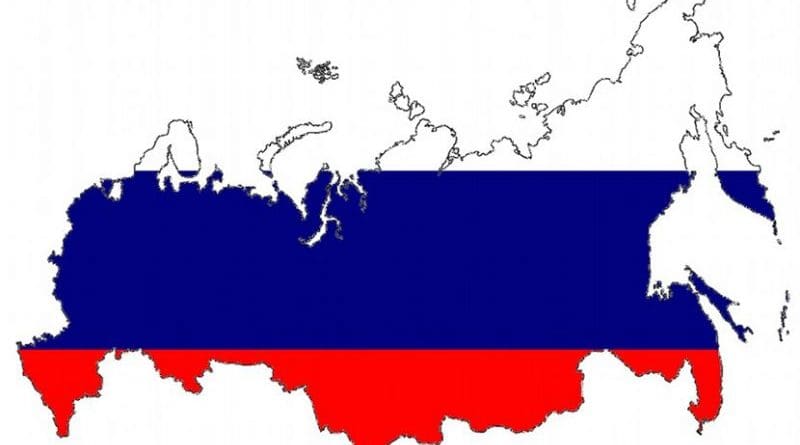Moscow Using Statistical Games To Hide Rising Unemployment
By Paul Goble
Russia is not only suffering from far more unemployment and underemployment than the powers that be there are reporting, but that country is likely to see a dramatic rise in the number of people without jobs and driven into poverty as a result over the course of the next year, according to independent Moscow experts.
Last week, Tatyana Nizhegorodskaya of “Versiya” reports the Russian statistics agency Rosstat reported that “the situation with unemployment in Russia is slowly but surely beginning to improve,” noting that in January 2010, the number of Russians hired exceeded the number fired (versia.ru/articles/2010/mar/09/bezrabotitsa_prodolzhaet_rasti).
But independent analysts, she says, argue that “such joyous indicators” are the result of statistical sleight of hand and are designed to make reports fit as closely as possible with the Russian government’s “planned” figure of unemployment of 2.2 million, lest Russians conclude that the government’s programs in this area have “failed.”
A close examination of the Rosstat figures in fact and even more a comparison with those offered by the International Labor Organization (ILO show that what Moscow officials are saying has little or no connection with the situation Russian workers now face – and even more what the latter will face during the coming months.
Not only are the Rosstat figures incomplete – they are based on only 75 federal subjects rather than all, almost certainly leaving out the North Caucasus republics where unemployment is at crisis proportions – but they reflect “administrative pressures” – Moscow has told governors they will be graded down if they report rising unemployment.
Moreover, Nizhegorodskaya continues, the ILO says that Russian unemployment now is 8.2 percent, nearly four times the official figure, but as FBK analyst Igor Nikolayev told her, “even the ILO statistic does not reflect the real picture of the labor market in Russia” at the present time.
In his view and that of other independent analysts, unemployment in Russia now stands at “around 10 percent,” a figure not so shocking when compared to those elsewhere. “However,” the “Versiya” journalist says, Moscow analysts are concerned that one measure of unemployment suggests that the situation in that regard is worsening rapidly.
They note, she writes, that “the number of unemployed for each job vacancy already for two years has continued to grow rapidly,” a trend that “means that the modernization and expansion of enterprises planned by the government is not taking place.” Instead, Russian companies are continuing to contract, even if official statistics don’t dwell on this yet.
In January 2009, these analysts report, there were 16 unemployed for each vacancy; but by October 2009, that figure had risen to 20.2 and at the start of 2010, it was 24.1, an increase in nearly 50 percent, at a time when the Russian powers that be were claiming that they had made significant progress in fighting unemployment.
There are various ways for companies to hide what is going on, she reports, including getting those let go to sign documents saying that they are leaving voluntarily, a phenomenon that those in low-skill positions often agree to but that those in higher paying positions, such as in the financial sector, seldom do.
Yevgeny Gontmakher, the outspoken deputy head of the Moscow Institute of World Economics and International Relations, told “Versiya” that “the situation with unemployment [in Russia] is deteriorating,” with most of those who have lost a job being unable to find a new one after more than a year of looking.
Moreover, there is a large amount of hidden unemployment, he noted, the result of government pressure to keep firms operating even though they in fact do not provide real jobs. Some of those enterprises, such as AvtoVAZ, will begin to shed workers this year, however, because management despite pressure from above has no choice left.
Indeed, Gontmakher concluded, “2009 was the last year when the regional powers that be had the opportunity to artificially restrain indicators” of unemployment. They no longer do in most cases, and consequently, dramatic increases in employment statistics are likely unless the powers that be simply falsify reporting.
This situation, Nizhegorodskaya says, “is complicated also by the fact that when speaking about the unemployed, officials as a rule consider only certain groups of the population, namely workers of large and mid-sized enterprises.” That is because Moscow directs most of its attention to them, but this focus means that some six million people are not counted at all.
Russian government statistics also do not include “citizens who formally do not have any work but at the same time are able to conclude short-term contracts with enterprises and thus receive some income.” This group, Moscow experts told “Versiya,” amounts to another 13 million people.
If all these groups of unemployed or underemployed are added together, Tatyana Maleva, the director of the Moscow Independent Institute of Social Policy, the number of Russians involved is “on the order of 26 million,” roughly the number of people who are “employed for instance in a country like Italy.”
There is no one way to count unemployment, and every government wants to put the best face on the situation and the impact of its policies. But the Russian powers that be seem even more willing than most to distort the situation, something that makes the development of policies there that will help those without work all the more difficult.

